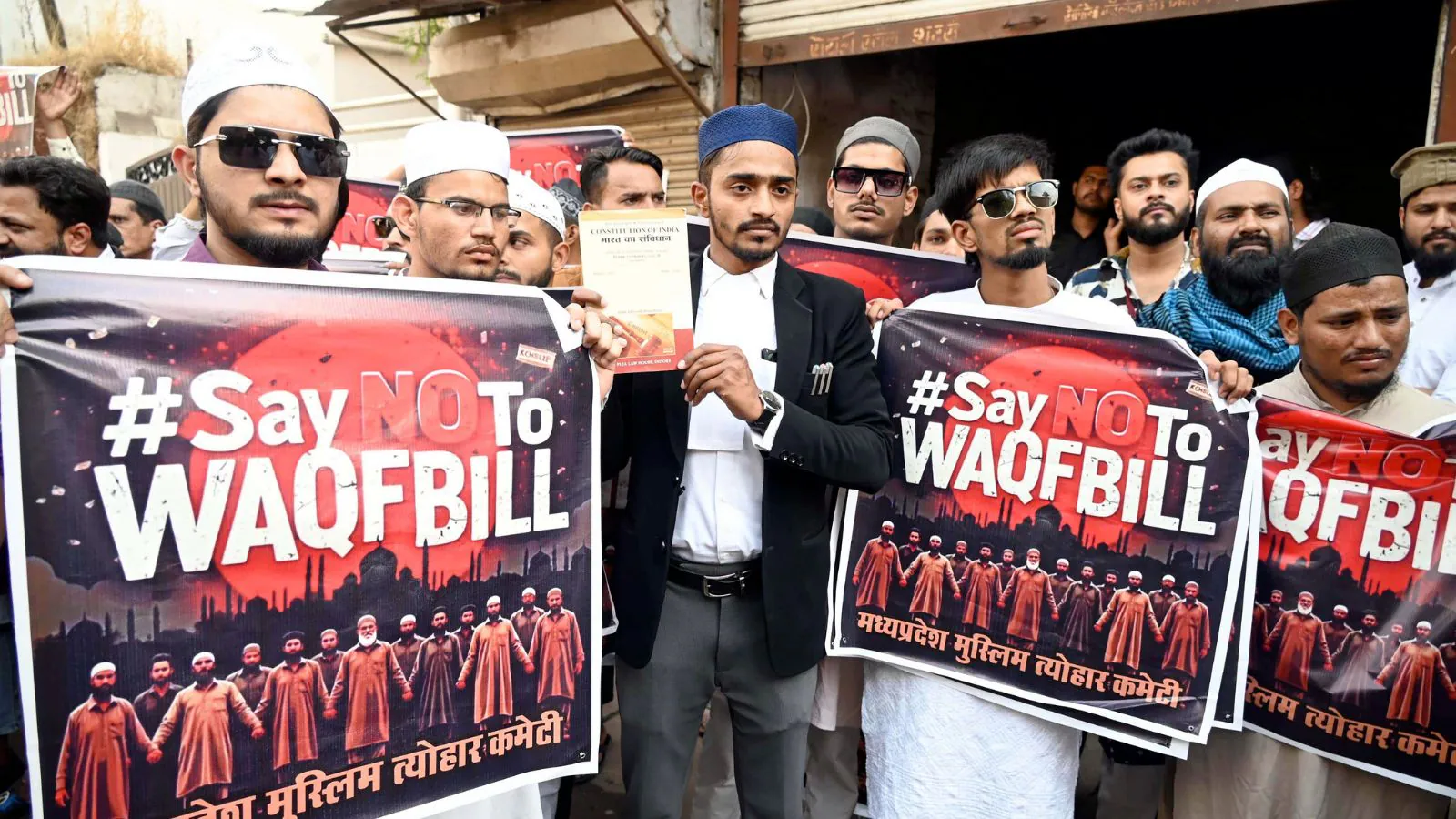By News18
Copyright news18

The Supreme Court on Monday refused to stall the operation of the Waqf Amendment Act, 2025, in its entirety, noting that “presumption is always in favour of the constitutionality of the law, only in the rarest of rare cases are laws stayed”, but halted some provisions of the Act.
Staying the requirement of a person to be a practising Muslim for five years, the court said it would be on hold till the government makes rules and comes up with a mechanism to avoid it becoming an arbitrary provision.
The court also observed that permitting the Collector to determine rights of property was against the concept of separation of powers. “Until title of Waqf under 3C is not decided finally, Waqf will not be dispossesed of property, neither will records be affected,” the Bench said.
The Supreme Court added that the Waqf Board will not have more than three non-Muslim members out of 11, noting that “so far as possible, the Chief Executive Officer of the Waqf Board should be a Muslim”.
The Bench headed by Chief Justice BR Gavai had reserved the interim orders on May 22 after hearing arguments on three consecutive days from Solicitor General Tushar Mehta, who represented the Centre, as well as advocates appearing for those challenging the amended Waqf law.
The Three Contentious Issues
The legal challenge primarily centred around three key provisions of the law.
1. The power to de-notify properties declared as Waqf by courts, Waqf-by-user or Waqf by deed.
2. Composition of state Waqf boards and the Central Waqf Council, where petitioners contend only Muslims should operate except ex-officio members.
3. Provision stipulating a Waqf property won’t be treated as a Waqf when the collector conducts an inquiry to ascertain if the property is government land.
What did the petitioners allege?
The petitioners, represented by senior advocates Kapil Sibal, Rajeev Dhavan, Abhishek Manu Singhvi, Huzefa Ahmadi, Chander Uday Singh and others, contended that the law discriminates against Muslims, permits arbitrary deprivation of Waqf properties, and targets essential religious practices.
The petitioners cautioned that scrapping the Waqf-by-user provision could lead to the loss of centuries-old mosques, graveyards, and other religious sites that, while lacking formal documentation, hold deep religious and historical significance for the community. They also objected to the inclusion of non-Muslims in Waqf Councils, arguing that such a move constitutes interference in Muslim religious affairs and violates Articles 25 and 26 of the Constitution, which protect the right of religious communities to manage their own affairs in matters of religion.
What did the Centre argue?
Appearing for the Centre, Mehta argued that although Waqf has its roots in Islamic tradition, it does not constitute an essential religious practice. He submitted that Waqf Boards primarily carry out secular functions such as property management, maintenance of accounts, and conducting audits.
“Hindu endowments deal with religious activities, including appointing pujaris. Waqf Boards do not touch upon any religious activity,” he said, drawing a distinction with Hindu endowments. He added that allowing at most two non-Muslim members in Waqf Boards would not alter their character, since their role is administrative and not theological.
On the issue of abolishing waqf-by-user, Mehta contended that it was a statutory provision introduced in 2013, not a fundamental right, and that Parliament was well within its legislative competence to repeal it through the 2025 amendment.
The Centre notified the Waqf (Amendment) Act, 2025, on April 8 after it got President Droupadi Murmu’s assent on April 5.
What had the court said in May?
“We have seen the law since the Mussalman Waqf Act of 1923. Technically, the 1923 law did not have a provision for registration, but information about the Waqf had to be provided,” the bench had observed.
“From the Waqf Act, 1954, registration was required. There was a report of 1976 which revealed why registration was necessary. From 1923 till 2025, for over 100 years, the scheme of various enactments had emphasised registration,” it added.



